
Mining & Trade News
Malawi Online News
Top Stories
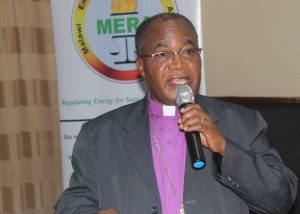
Energy
MERA gets tough on electrical installersJanuary 19, 2020 / Wahard Betha
The Malawi Energy Regulatory Authority (MERA) has come up with tougher guidelines and conditional requirements for electrical installers.
The conditional requirements include: age; knowledge; adequacy of work; premises, instruments and tools and; permit renewal.
Board Chairperson for MERA Joseph Bvumbwe said during a stakeholders’ consultative workshop on newly developed guidelines for electrical installations inspectors in Lilongwe that the new conditions will act as a guide in the process of appointing electrical installations inspectors and how they will be conducting inspections.
He said the new tougher conditions will ensure that the installers are well prepared before booking for interviews to get legal certificates.
“The guidelines will provide the scope of work of the inspectors through the classification provided in Section 5 of the Electricity (amendment) By-laws of 2018 and also provide procedures for inspection of electrical installations,” Bvumbwe said.
He explained that the guidelines will cover all types of installations including existing and new installations, and modifications and replacement of electrical equipment.
MERA Senior Electricity Specialist Shaibu Mludi said MERA came up with the new conditions following a survey conducted in the country’s major cities, which discovered abnormalities in electrical installations.
He said though all targeted installers were above recommended age (18), about 50 percent were found lacking knowledge about installation, while the average of 73 percent had no protective equipment.
“Most installers do not have an operating workshop, and those installers with overwhelming jobs do stay in a cubicle without suitable tool boxes and instruments to conduct tests,” Mludi said.
He also revealed that some installers were found with forged permits, operating without registering, non- committal to renewal of permits and some selling the registration to non -registered installers.
Mludi said minimum passing rate for the installers during practical performance assessment during inspections is 75 percent and warned that the Authority will de-register installers performing below 75 percent.
“MERA will impose penalties on installers who forge or sell stamps to uncertified electrical installers and that it will also organize installers committee to sensitize members on the dangers of forging and selling stamps to non-licensed installers,” he said. Electrical Contractors Association of Malawi President Michael Gadama admitted the presence of the
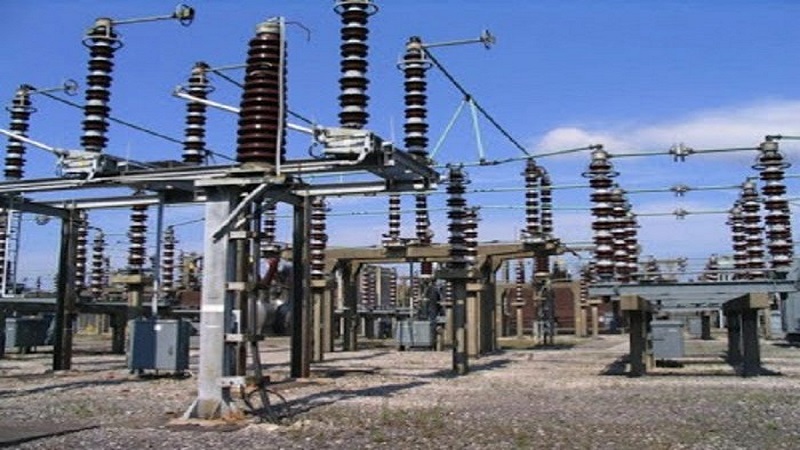
Energy
Mozambique-Malawi electricity Interconnector project on courseJanuary 14, 2020 / Charles Pensulo
The governments of Malawi and Mozambique have initiated a resettlement process to pave way for the construction of the electricity interconnector which will enable Malawi import electricity from the region through the Southern Africa Power Pool (SAPP).
This comes after the two countries have secured funds from the Norwegian Trust Fund, the World Bank, German Development Bank (KFW) and the European Union to finance the project.
Electricity Supply Corporation of Malawi Limited (ESCOM) and Electricidade De Mozambique, E.P. (EDM) explain in a statement that they are now in the process of recruiting Rap (Resettlement Action Plan) implementation consultant for the 400 KV Interconnector Project.
The first phase of the interconnection process will involve construction of the transmission line from Matambo substation in Tete, Mozambique to the Phombeya substation in Balaka, Malawi. Later, there will be an extension and upgrade of the Matambo substation on the Mozambican side from 220 KV to 400 KV.
“The Rap (Resettlement Action Plan) Implementation Consultant’s assignment is to ensure timely, appropriate and comprehensive implementation of the RAP in compliance with applicable legislations of both countries,” reads the statement.
It is expected that the consultant will be involved in all matters pertaining to the implementation of the resettlement plan, which will include mitigation of the adverse effects of the project.
“The implementation [of the resettlement plan] shall be done in accordance with the RAP plan developed by another consultant as well as in accordance with Environmental and Social Impact Assessment (ESIA) and the Resettlement Policy Framework (RPF) prepared by another consultant,” Escom and EDF say.
“The RAP implementation consultant will closely work with EDM and ESCOM’s Project implementation Units and Environmental and Social specialists, and cooperate with the respective local authorities in each country responsible for land acquisition, resettlement and compensation.
The two electricity companies have since invited eligible consulting firms to indicate their interest in providing the services.
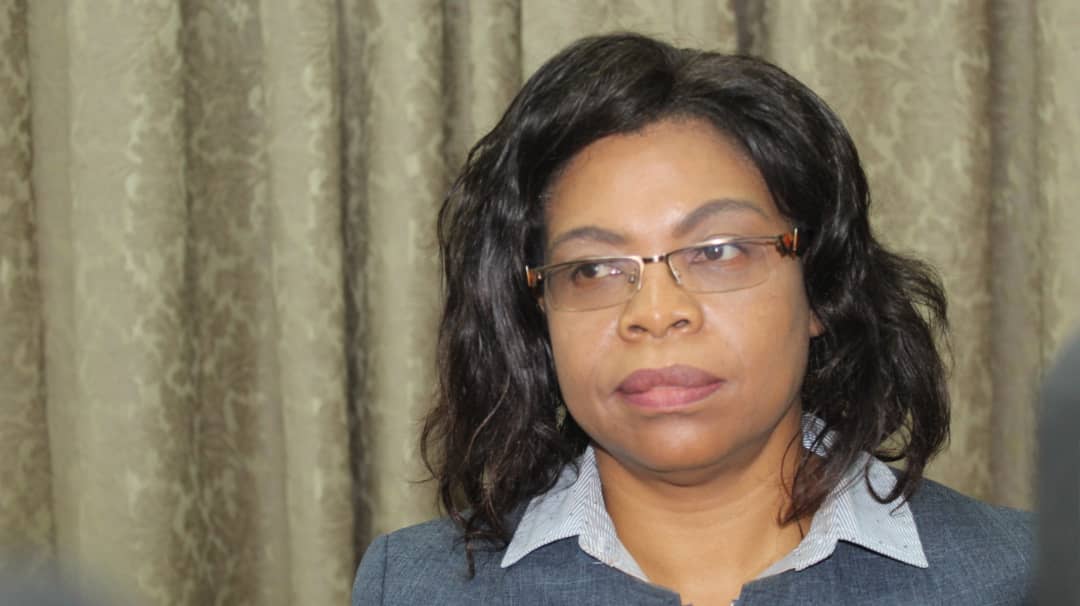
Energy
MALAWI GOVT. SCOUTS FOR STRATEGIC INVESTOR FOR 350MW POWER PROJECTDecember 19, 2019 / Wahard Betha
The Malawi Government is seeking a strategic private sector sponsor to develop the proposed 350MW Mpatamanga Hydro Power Project on the Shire River.
The Mpatamanga project, which was identified in the 1998 Power Development Plan study, is being developed as a Public Private Partnership with the Malawi government through EGENCO acquiring 30% shareholding and a strategic sponsor expected to have 70% interest.
Speaking to Mining and Trade Review at the launching ceremony of the procurement process for the strategic sponsor in Blantyre, Acting CEO for Malawi’s Public Private Partnership Commission, Audrey Mwala, said the new power plant will be located at Mpatamanga Gorge, between the two existing hydropower plants, Tedzani and Kapichira, on the Shire River.
She said: “Government conducted a comprehensive Feasibility Study in 2018 which recommended a peaking plant with a capacity of 309MW, and the station will have two dams: Main dam for 309MW daily peaking plant, and a regulating dam downstream for additional 41MW of baseload generating.”
“The project intends to meet future power demand and to balance current and future baseload energy from solar, wind, thermal or run of river plants as it will provide crucial peaking capacity for Malawi.”
The Malawi Government is, meanwhile, looking for interested bidders who upon signing confidentiality undertaking and paying the required fee will be granted access to a Virtual Data Room containing all necessary documents for the project.
She said the state will organize a pre-bid conference and will provide additional opportunities for bidders to submit queries and seek clarifications during the tender process.
The strategic sponsor will also be subsequently required to tender out certain key contracts in compliance with requirements set by the Malawi Government.
Minister of Natural Resources, Energy and Mining Bintony Kutsaira, who graced the launching ceremony for the procurement process, touted the project as one of various interventions that his Ministry is pursuing to develop the energy sector which is one of the priority areas in the Malawi Growth and Development Strategy (MGDS) III.
“The country is ranked poorly on access to electricity which is only available to 11% of the population, despite this low penetration of electricity, the country faces significant blackouts mainly arising from a low generation capacity. Implementation of this project means a halt to persistent power blackouts.”
Kutsaira expressed gratitude to the World Bank for financing the feasibility study of the project.

Energy
Kutsaira to unveil new energy policyNovember 25, 2019 / Gloria Mbwana
Minister of Natural Resources, Energy and Mining Bintony Kutsaira is set to launch the new National Energy Policy 2018 on Wednesday, November 27 at Bingu International Convention Centre (BICC) in Lilongwe.
Secretary for National Resources, Energy and Mining Patrick Matanda says in a press statement that the new policy, which is a culmination of a wide consultation process that took into account a variety of views from various stakeholders, is a revision of the 2003 national energy policy.
He explains that the new policy emphasizes on the importance of private sector participation in the energy sector and provides an environment conducive for such participation in the energy sector in the form of direct investment, public and private partnership.
Matanda says: “The policy also emphasizes on sustainable and clean energy which is accessible to all.”
“Energy efficiency is another priority area of this policy which also recognizes the importance of security of energy supply systems.”
“Mitigating environmental, social safety and health impacts of energy production and utilization is a key part of the policy.”
Government has reviewed the 2003 policy because in spite of its success, it had a number of shortfalls and challenges which needed to be rectified,
“The 2003 policy was driven by the vision 2020 and the Millennium Development Goals ( MDGs), and the development agenda has since moved on and the MDGs have given way to Sustainable Development Goals (SDGs) and the main development agenda for Malawi now is Malawi Growth and Development Strategy lll, both of which have put energy as a high priority area”, he says.
The other factor that necessitated the revision of the 2003 policy is that in 2015 the government of Malawi (GoM) adopted a power marketing policy as well as an oil importation policy and both needed to be factored into the new energy policy.
“The United Nations Sustainable Energy for all initiative of 2011 also emphasizes on issues of access to energy for all agenda which again needed to be reflected in the new policy,” says Matanda.
The Malawi Government has adopted a public sector reform program that is aimed at ensuring efficiency, transparency and accountability in the delivery of public services of which energy is a part.
The goal of the new policy is “Access to affordable, reliable, sustainable, efficient and modern energy for all Malawians by 2030.”
.jpg)
Energy
Hydro power to remain crucial in Africa’s energy mix – ExpertsNovember 22, 2019 / Charles Pensulo
It could be solar or coal. But water as a source of power must not be ignored. At least that is what might take for the African region to achieve energy efficiency, according to experts at a recent African Hydro Symposium which took place in Blantyre, the 29th of its kind in the region.
Scores of delegates from well over 14 countries gathered in the Warm Heart of Africa to share the future of power generation in the region.
The timing and the hosting nation could not be more convenient. Malawi has one of the lowest electrification rates in the region. Statistics indicate that only about 11% of the people in the country with a population of over 17-million are connected to the country’s main grid.
And the effects of the current climatic conditions on the generation of power in the region should not be ignored, according to the experts who took part in the three-day conference.
“In Southern Africa where rainfall patterns have changed, we need to call for innovation from partners on sustainable ways of generating power. We need turbines that use less water,” said William Liabunya, CEO for Electricity Generation Company of Malawi (Egenco).
Liabunya cited Malawi and Zimbabwe which are facing electricity challenges mostly due to decreased water levels in Lakes and rivers as the major victims of the effects of climate change on power generation.
But climate change is only one of the challenges affecting power generation in the region. Lack of adequate investment by private companies is another contributor to inadequate power generation.
Why companies?
EGENCO, the first parastatal to play the role of a power generator in the country has been in operation for just only two years. One of its maiden projects has been to increase the energy capacity of Nkula A. So far, the rehabilitation of the power plant has seen a boast of 10 megawatts. Other projects are in the offing.
During the conference, Secretary for Ministry of Natural Resources, Energy and Mining, Patrick Matanda highlighted EGENCO’s 15-year strategic plan aimed at improving power access in the country.
Matanda said there is need to increase power supply in the country as this will ultimately increase economic opportunities.
“Clinics will open, students will study well in the villages, businesses will be kept open and this will ultimately attract investors,” he said.
Liabunya said private companies need to join the bandwagon through investment in power generation as Independent Power Producers (IPPs) to supply the national grid, and supplement power generated by EGENCO in order for Malawi to overcome the energy deficit.
The conference attracted four European countries including United Kingdom, Croatia, German and Austria.
African countries represented included Namibia, Kenya, Democratic Republic of Congo, Mozambique, Cameroon and Kenya.
“When you look at our young history, it gives us pride to host this symposium,” said Liabunya, “Maybe out of the 14 countries in the region [present] we have the lowest reach and it is our responsibility to make the changes.”
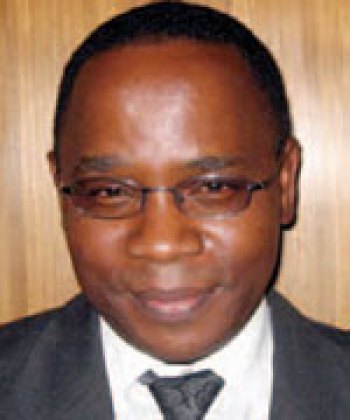
Energy
Construction of Mozambique – Malawi Interconnector ready to commenceNovember 12, 2019 / Wahard Betha
Construction works for the long awaited Mozambique – Malawi power interconnector are now ready to commence following the signing of the Implementation Agreement for a EUR 20-million grant that the European Union (EU) will provide for the project through German Development Bank (KfW).
Electricity Supply Corporation of Malawi (ESCOM) CEO Allexon Chiwaya penned the Agreement with officials of KfW.
“The signing of the agreement is an important milestone as it paves way for commencement of project implementation,” says Escom, EU, German Technical Cooperation (GIZ) and KFW in a joint statement.
Besides the EU support, the World Bank has earmarked US$ 15-million while the German Government through the KfW is contributing EUR 30-million to Mozambique’s power utility, EDM, for the construction works on the Mozambique side.
Through the 218 km long 400 kV transmission line, Malawi will start importing electricity from Mozambique and other Southern Africa Power Pool (SAPP) countries from 2023.
The statement reads: “The interconnector will see Malawi connecting to the SAPP for the first time since the nation became a member of SAPP in 1995 and expects the country to effectively upgrade its position from an observer to a fully operational member of SAPP.”
“The development will benefit the country as more clean energy will be supplied once the transmission line is functional.”
“The Increase and stabilization of power supply will significantly improve the access to clean energy for the private sector and consequently contribute towards sustainable economic growth.”
“Importantly, this clean energy will aid mitigation of climate change. As households will be supplied with adequate and reliable electricity each day, consumption of firewood and charcoal will be reduced.”
EU Ambassador to Malawi Sandra Paesen; German Ambassador to Malawi Juergen Borsch; and Senior Government of Malawi officials from both Ministry of Finance, Economic Planning and Development and; Ministry of Natural Resources, Energy and Mining witnessed the signing ceremony of the Agreement.
The Ambassadors bemoaned Government’s delays in the finalization of agreements with Independent Power Producers (IPPs) saying increased power availability and successful private investment in the energy sector attracts further investments in other sectors of the economy.
On the Malawi side, the interconnector will start at the 400 kV Phombeya substation in Balaka district and will traverse into Mozambique to connect to a new 400 kV Matambo substation in Tete province, in Mozambique.
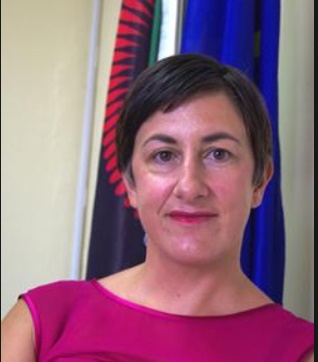
Energy
EU lauds benefits of Mozambique-Malawi interconnectorNovember 08, 2019 / Wahard Betha
The European Union (EU) Mission in Malawi has described the Mozambique-Malawi 400kV interconnector project as game-changer, saying it will link up Malawi’s energy grid to the regional electricity market of the Southern Africa Power Pool (SAPP) and facilitate trading as well as balancing of electricity among countries within the region.
EU Ambassador Sandra Paesan made the observation in a statement in which she hailed the ‘great things’ that happens when the EU and Malawi put their energy into joint projects.
Paesan said in partnership with KfW (the German Development Bank), the EU is supporting the Mozambique-Malawi 400kV interconnector project alongside other regional infrastructure initiatives aimed at boosting regional trade and economic growth.
Other initiatives that EU supports include the North-South M1 corridor in partnership with the European Investment Bank and the Nacala road corridor in partnership with African Development Bank.
She said currently lack of access to reliable power is preventing Malawi from realizing its full economic growth and development potential as businesses and people are affected by regular power cuts and high costs of power through diesel generators.
The ambassador noted that energy being one of the main drivers of inclusive and sustainable growth and jobs, Malawi needs reliable power supply if it were to achieve meaningful economic development.
In this vein, she explained that the interconnector project will provide Malawi’s business sector with more secure supply, which in turn will create an environment where business development can accelerate.
She also said having attained dependable power supply, there will be a multiply effect as growth in agricultural sector will benefit from new value chains that depend on a secure and affordable source of energy.
“A secure supply will further led to improved productivity as businesses will be in a position to operate uninterrupted while optimizing investments,” she said.
Paesan noted that Malawi’s energy infrastructure needs are quite substantial hence the need to attract private investment into the energy sector, particularly in renewable energy, to complement efforts from development partners.
She welcomed the initiative by the Malawi Government to procure 70MW of solar energy, saying it is in tandem with Africa-Europe Alliance and European External Investment Plan.
“Renewable Energy is the future and Malawi should fast-track the process of this initiative which started two years ago, so that the country realizes the benefits of such power investments,” she said.
The diplomat said European companies are ahead on the market when it comes to renewable energy investment and will be available to help Malawi in this respect.
“It is critical to continue our joint efforts to strengthen Malawi regional connectivity and infrastructure in view of supporting inclusive growth and development for all Malawians” said Paesen.
The EU recently organized a meeting with private firms in Blantyre, which discussed investment bottlenecks, including the prevailing energy woes.
attained dependable power supply, there will be a multiply effect as growth in agricultural sector will benefit from new value chains that depend on a secure and affordable source of energy.
“A secure supply will further led to improved productivity as businesses will be in a position to operate uninterrupted while optimizing investments,” she said.
Paesan noted that Malawi’s energy infrastructure needs are quite substantial hence the need to attract private investment into the energy sector, particularly in renewable energy, to complement efforts from development partners.
She welcomed the initiative by the Malawi Government to procure 70MW of solar energy, saying it is in tandem with Africa-Europe Alliance and European External Investment Plan.
“Renewable Energy is the future and Malawi should fast-track the process of this initiative which started two years ago, so that the country realizes the benefits of such power investments,” she said.
The diplomat said European companies are ahead on the market when it comes to renewable energy investment and will be available to help Malawi in this respect.
“It is critical to continue our joint efforts to strengthen Malawi regional connectivity and infrastructure in view of supporting inclusive growth and development for all Malawians” said Paesen.
The EU recently organized a meeting with private firms in Blantyre, which discussed investment bottlenecks, including the prevailing energy woes.
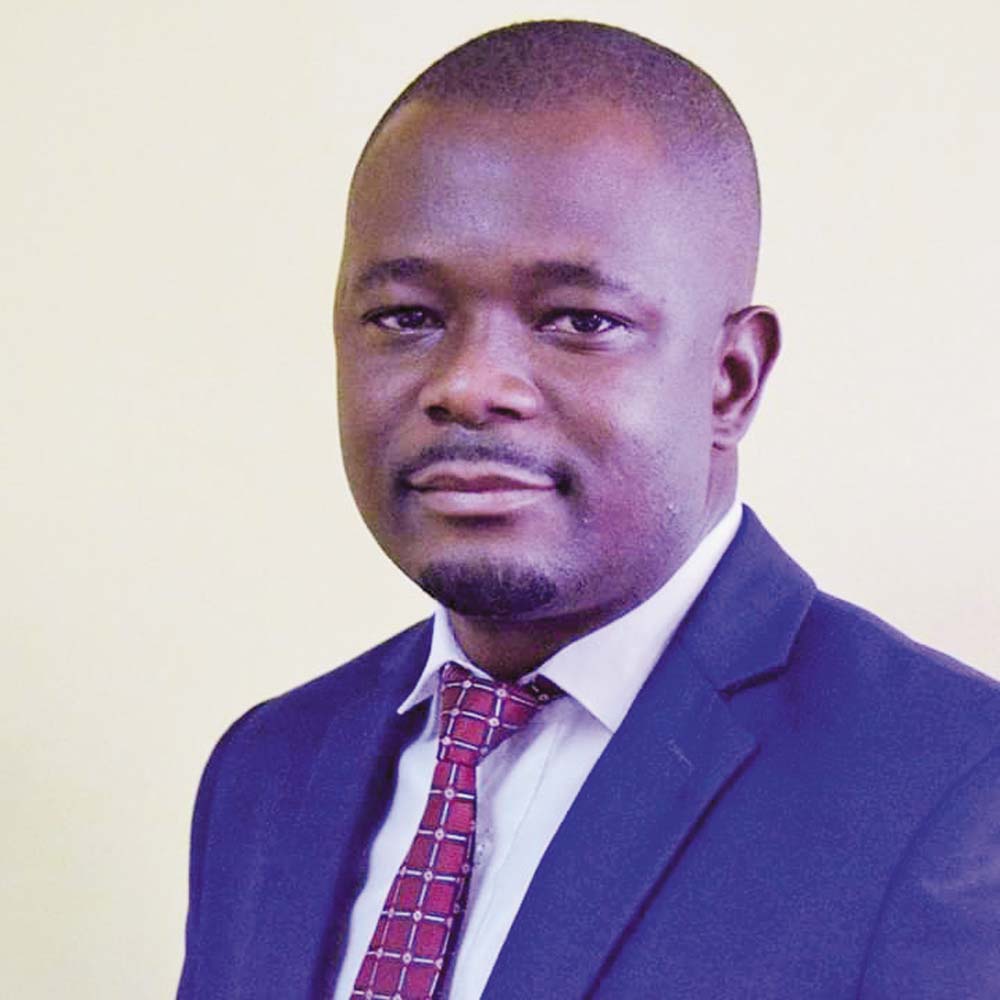
Energy
EGENCO to host 2019 African Hydro SymposiumSeptember 14, 2019 / Wahard Betha
The Electricity Generation Company (EGENCO) will from September 8th to 10th host the 2019 African Hydro Symposium (AHS) at the newly built Sunbird Mount Soche Hotel’s SocheInternational Conference Centre in Blantyre.
The theme for this year’s symposium, which is the 29th, is “Quality Power for Sustainable Development in Africa.
Senior Public Relations Officer for EGENCO Moses Gwaza says in a Press Statement that EGENCO is currently inviting various organizations and individuals in the country to participate in the symposium which is a beneficial platform for sharing vital information with foreign hydro energy experts.
“The symposium which is held annually, is a regional forum where hydro power plant operating experts representing various electricity utilities and Independent Power Producers (IPPs) in Africa, meet to share experiences and deliberate on developments, operations, maintenance and management of hydro power plants in the continent,” Gwaza explains.
He says the meeting will attract approximately 150 delegates from power utilities across Africa and some international stakeholders from various energy sectors, equipment manufacturers and suppliers from Europe, Asia and America.
Gwaza says the hosting of the great conference is a collaboration of both EGENCO and the Secretariat of the African Hydro Symposium based at Kafue Gorge Regional Training Centre in Zambia.
He urges organizations wishing to participate as joint sponsors and organizations in the power and related industries to register their individual employees as delegates to attend the symposium.
Meanwhile, various companies and organizations in the country have come up to provide financial assistance to the event.
The companies include the NICO Group which donated K4.5-million to the power utility for the event, which will explore strategies to develop the energy sector for economic growth.
EGENCO CEO William Liabunya thanked NICO for the support saying it manifests that the insurance company is a good corporate citizen who want to help EGENCO overcome the country’s power generation woes.
The symposium will provide a room for sharing of viable ideas to move Africa’s electricity access from an average of 30 to 35%.
EGENCO was founded in 2017 as an electricity generation utility after the unbundling of the Electricity Supply Corporation of Malawi (Escom) into two entities with Escom responsible for power transmission and distribution.
The company, which recently launched its strategic plan, has planned a number of power generation projects including the construction of Mpatamanga hydro plant on Shire River.
EGENCO is seeking financing to execute the US$473-miillion project which will be supplying 309 MW to the national power grid.
German Consulting firm, Fichtner GmbH and CO KG, already conducted a feasibility study for the project with funding from the World Bank as part of the Energy Sector Support Project.
Besides Mpatamanga project, EGENCO is also sourcing funds for three other generation projects including the 138MW Kholombidzo Hydroelectric Power Plant which will be constructed on the Shire River upstream of Zalewa Bridge.
The US$511.5-million plant to be constructed over a period of 5.5 years will be uppermost in the cascade of the hydro-plants in the river.
Egenco is also planning to construct the 180MW Songwe Hydropower Plant on Songwe River through cooperation between the Governments of Malawi and Tanzania.
The utility is also working on the expansion of Wvowe Mini Hydropower Scheme to add 4.5MW to the power grid.
EGENCO also plans to install a solar PV plant close to a load center at Nanjoka in Salima to maximize benefits to the national grid and satisfy the afternoon peak demand. The project scopes installation of a 20MW solar power plant to increase the generation capacity and introduce a diverse power mix in the generation system.
Trash interruption is the one of the contributing factors hindering power generation in the country so EGENCO is also conducting trash river diversion projects in many power stations on the Shire River.
In September 2017, the company commenced an 18 months project of dredging and diverting a tributary that was depositing a lot of slit at the Tedzani intake pond, a project that consumed about MK5-billion.
With funding from the US government energy compact through the Millennium Challenge Corporation, in January 2019 EGENCO acquired a brand new dredger for Kapichira power station to remove silt which covered over 70% of the generating dam.
Siltation lowers the water levels in the dams making it difficult to generate electricity matching the demand.
Currently the country has 406.6MW installed generation capacity but only 335.15MW is available to cater for 18.63 million people.
The utility’s hydro-power plants include Nkula A and B, Kapichira I and II, Tedzani I, II and III and Wovwe.
EGENCO is also planning to construct a coal fired power plant as one way of diversifying the power sources.

Energy
MERA scales up safety measures on electrical installationAugust 26, 2019 / Wahard Betha
The Malawi Energy Regulatory Authority (MERA) has established a new Installer’s Permit Committee (IPCO) and mini-grid egulatory framework which it has described as a vital tool in preventing accidents that occur due to poor electrical installation.
Board Chairperson for MERA KhwauliMsiska said at a sensitization workshop for the new framework in Lilongwe that the revised electrical installation assessment framework recognises that installers are usually good at specific installations that need to be certified for the safety of the installed buildings.
He said in the old framework experience was missing as criteria for certifying installers but the new framework will be considering both experience and qualification as chances for upgrading and certification of the installers.
“In order to reduce incidences in form of fire, electrocution and equipment damage, those doing installations need to be only those that have the right qualifications and experience,” Msiska said.
He urged all the electrical installers to acquire permits from MERA observing that many electrical installers in the country are operating without possession of valid permits which is putting people’s properties at high risk of catching electric fire.
Msiska also expressed concern over the existence of a number of mini-grids developed by both Government and non-governmental organizations which have been handed over to communities, without relevant training, on management, operation and maintenance.
“You can agree with me that mostly ownership and organizational structures of the mini-grids are not clear and accountability and transparency procedures are not clearly defined, which presents challenges for authority institutions to manage supporting and regulatory structures,” he said.
Msiska said the new framework for mini-grids intends to achieve sustainable development and operation of the mini-grids in Malawi in strides towards providing modern energy to remote areas where grid extension does not offer an economically feasible extension solution.
He said MERA recognizes the significance of engaging Government and stakeholders in ensuring effective regulation of the energy sector and understanding on matters relating to the regulation of the mini-grids.
Msiska thanked United Nations Development Programme (UNDP) country office for financial support towards the development of the mini-grid framework.
“The preparation of the regulatory framework for mini-grids in Malawi was a commitment and devotion from many stakeholders of whom we are highly grateful for their valuable contributions,” Msiska said.
Commenting on the development, an electrical contractor PempheroNazombe lauded the new framework saying it will assist experienced electrical engineers in upgrading their licenses.
“This workshop is important as the new permit has included experience as one of the aspects for one to upgrade while the past permit only centered on qualifications like university degrees leaving out the experience that one has,” Nazombe said.
He said the development will also assist in marketing brands of certified installers since organizations will be considering legal permits before deploying the contractor.
Nazombe pleaded with fellow electrical contractors to comply with the framework in so doing assist in preventing people’s properties from electrical accidents.
MERA is mandated to regulate the energy sector in Malawi in a fair, transparent, efficient and cost effective manner for the benefit of the consumers and operators.































